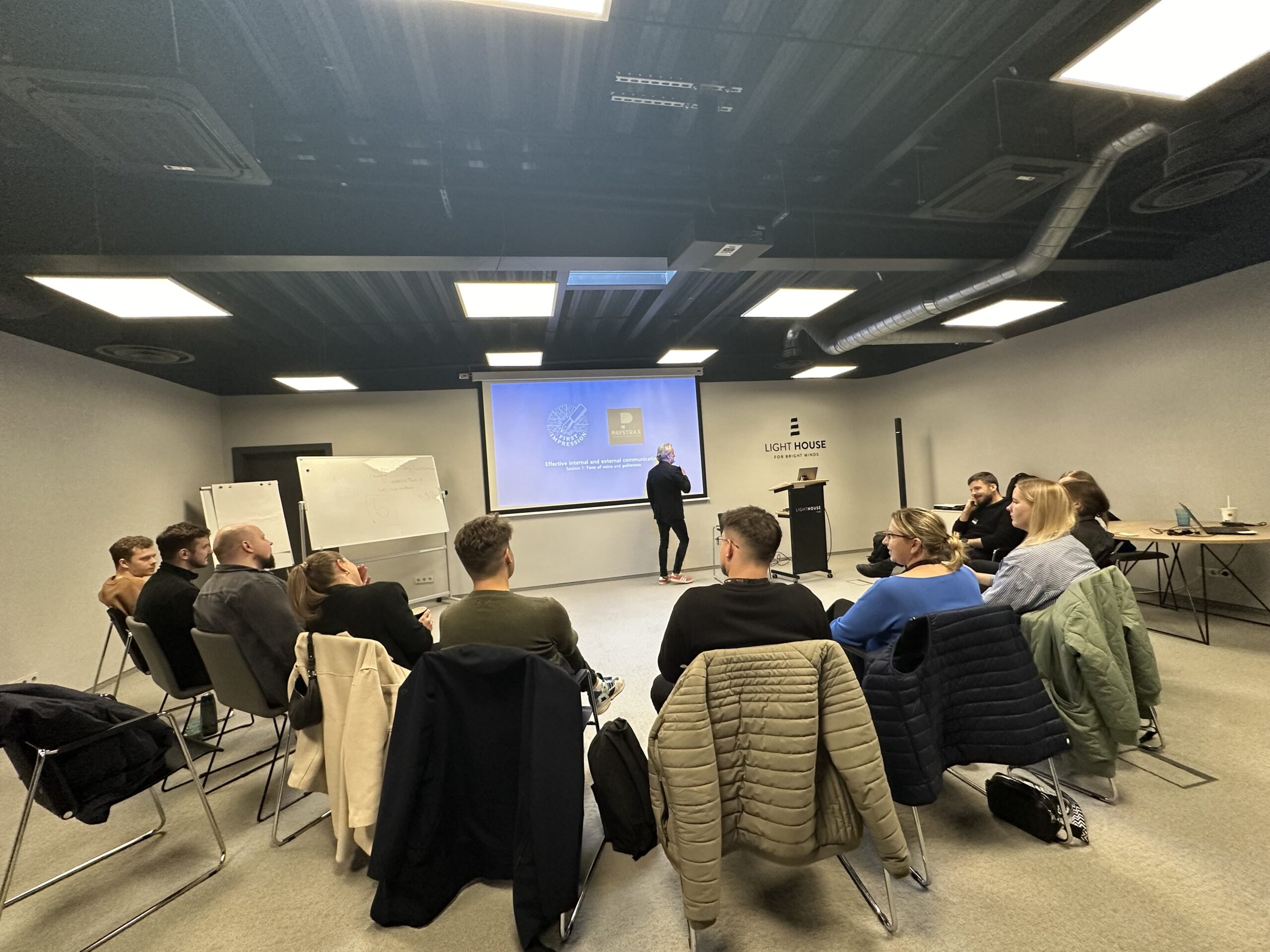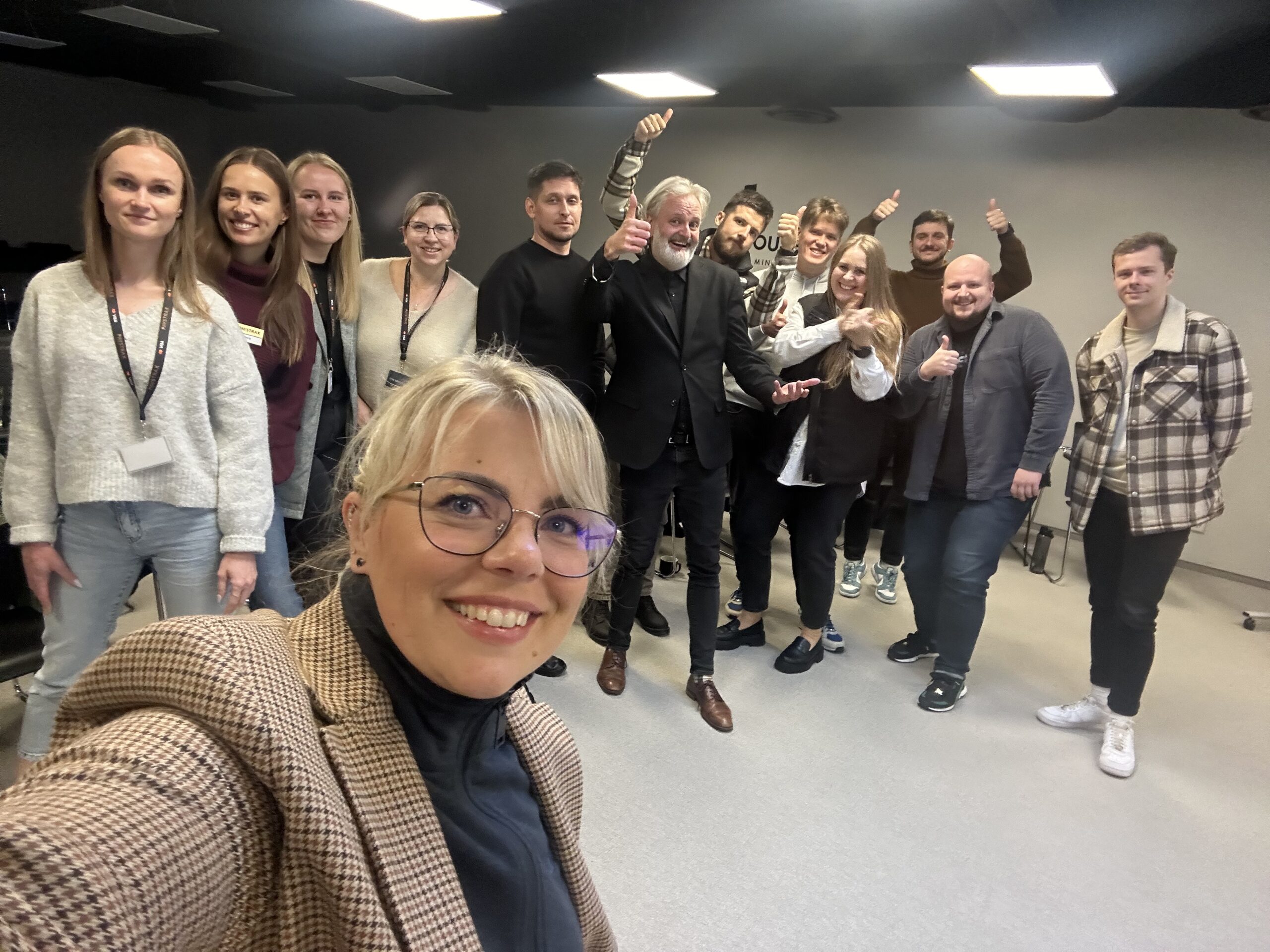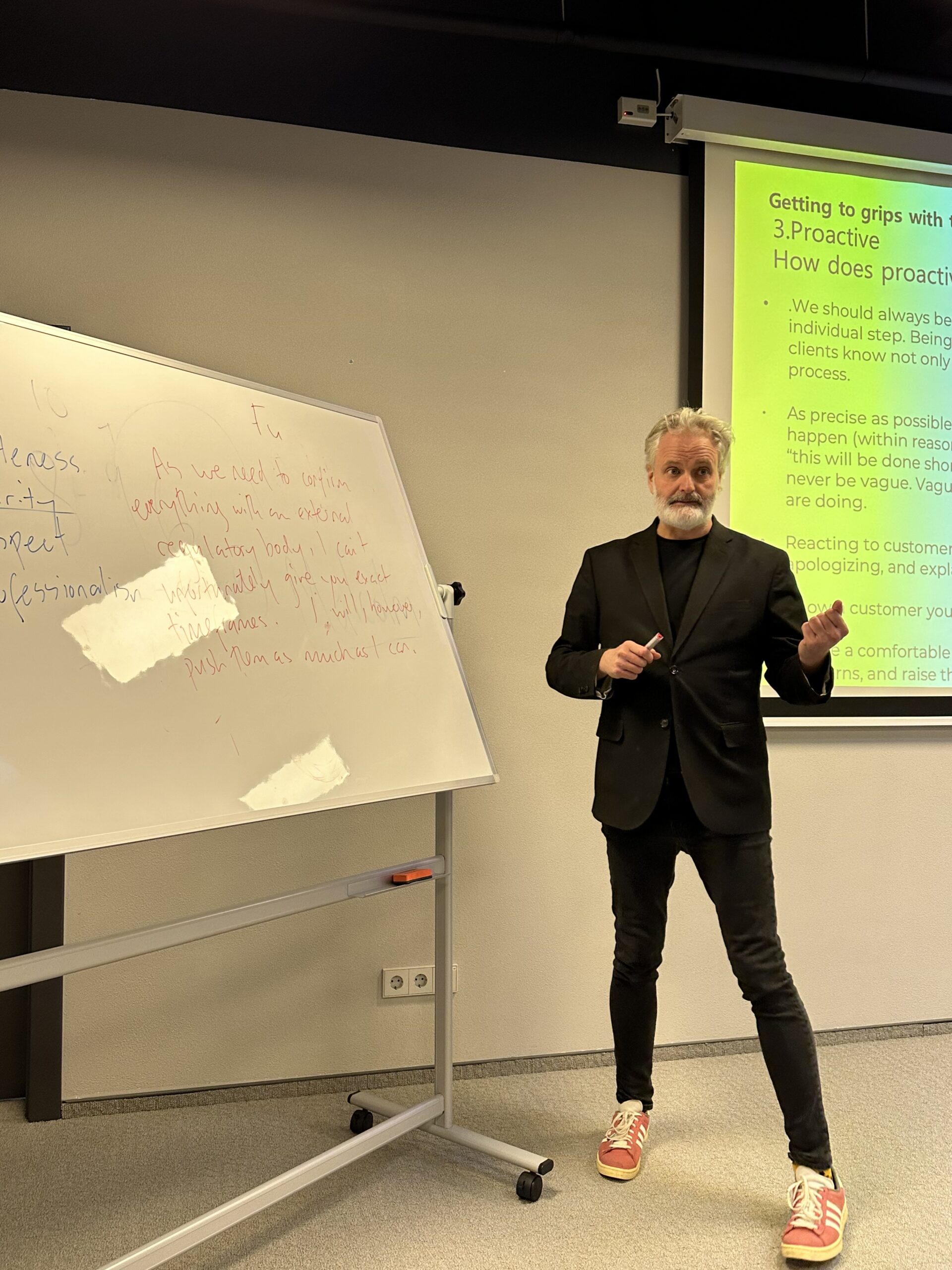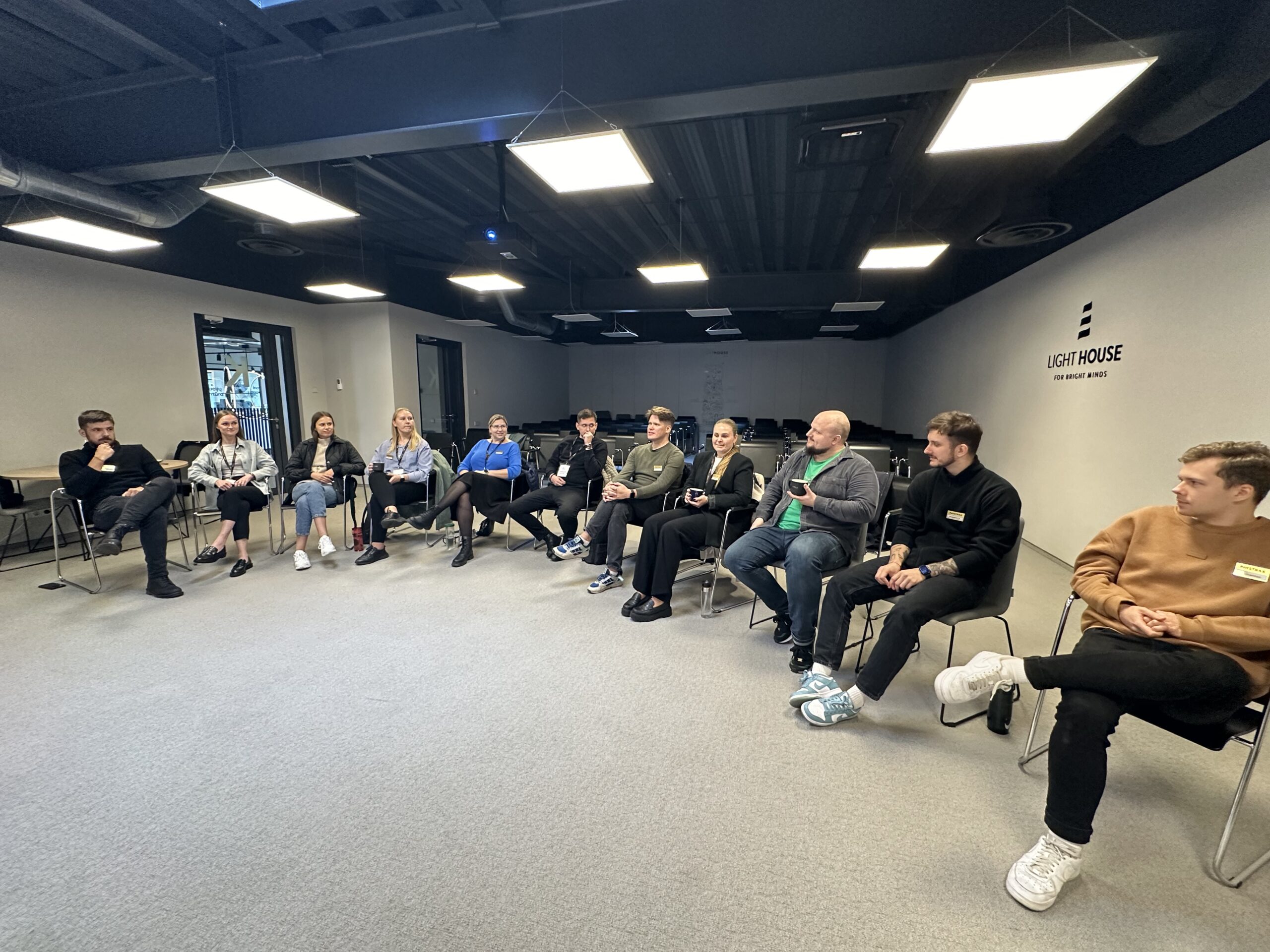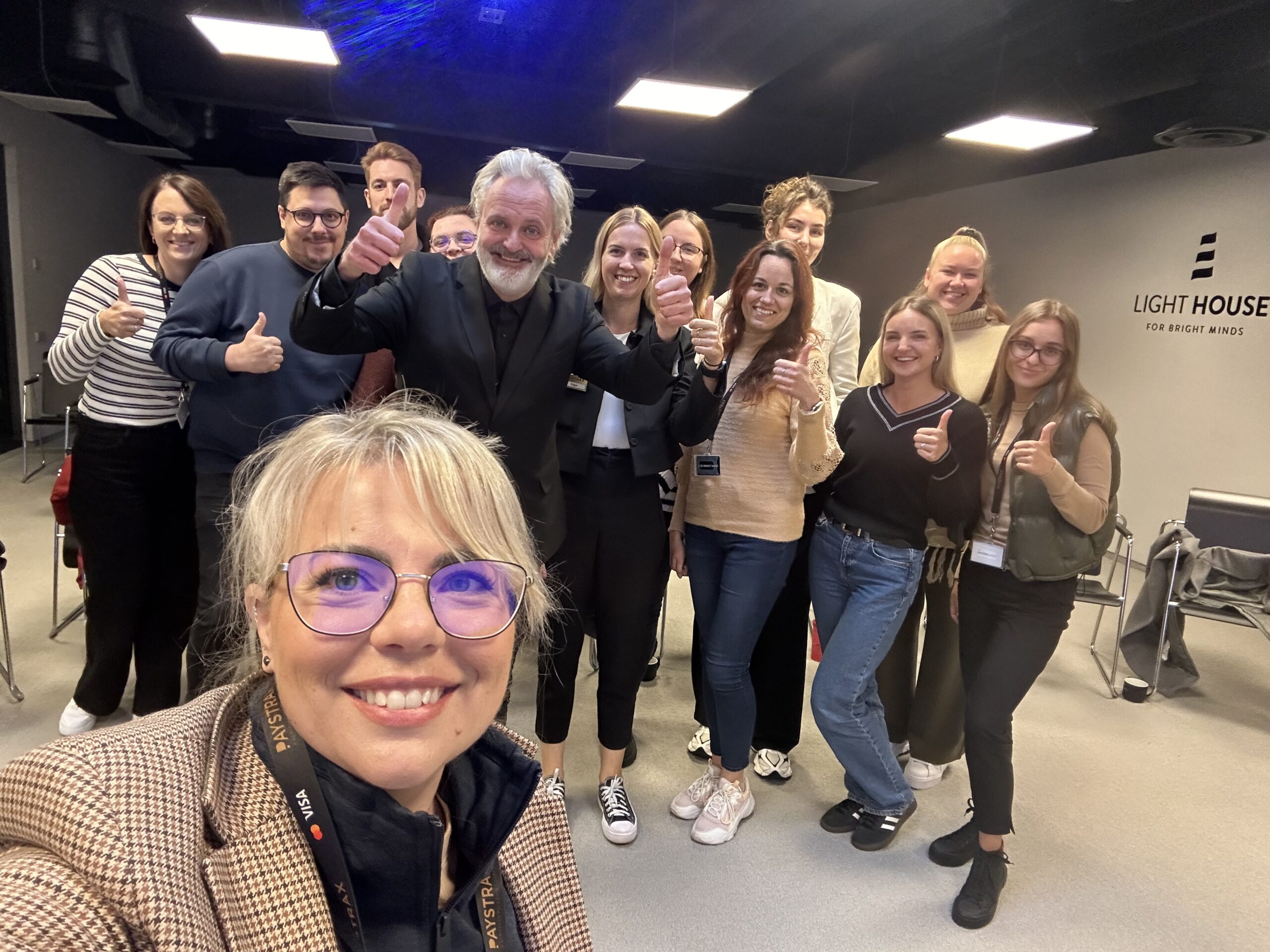Effective communication is at the heart of any successful business, both internally among teams and externally with customers. According to survey, effective communication increases productivity by 72% for business leaders and 52% for knowledge workers. Together with that comes higher customer satisfaction and improved relationships with colleagues. This is why investing in communication training is essential – it equips employees with the skills to convey ideas clearly, listen actively, and engage meaningfully with both colleagues and clients.
In September and October, PAYSTRAX employees took part in a comprehensive communication training program. The training began with an online session focusing on online communication, later followed by in-person practical workshops in Vilnius and Klaipėda. The sessions were led by the First Impression team, experts in the field of communication and customer service.
Internal training benefits for employees
Training isn’t just about learning new skills – it’s about empowering employees to grow in their roles. Our Head of HR, Monika Kareckaitė-Šiupinienė, highlights that investing in ongoing learning not only strengthens the workforce but also fosters a culture of innovation and collaboration. Below, Monika shares key ways internal communication training can support employee development and enhance overall team performance:
Skill development: Employees can enhance their existing skills or learn new ones that are relevant to their roles, making them more effective in their jobs. This not only improves individual performance but also increases their adaptability to new challenges and opportunities within the company.
Relationship opportunities and improved team collaboration: Internal training sessions allow employees to connect with colleagues from different departments, fostering collaboration and teamwork. These interactions help build stronger relationships across the organization, encouraging knowledge sharing and creating a more cohesive, supportive work environment.
Better conflict resolution: Communication training equips employees with the skills to handle disagreements professionally and constructively, rather than reacting based on emotions. This enables more productive conversations, reduces workplace tension, and fosters a more harmonious and collaborative work environment.
Enhanced customer relations: Improves interactions with customers, leading to higher satisfaction. By understanding customer needs and communicating more effectively, employees can build stronger relationships and foster long-term customer loyalty. It also reduces misunderstandings and ensures clear communication, saving both time and effort for the company and the customer.
Retention: Organisations that invest in training often see lower employee turnover rates, as employees are more likely to stay with a company that supports their professional growth. This demonstrates that employees feel more valued within the company and are generally more satisfied with their roles.
Internal training offers numerous benefits to employees, from enhancing their skills to fostering better collaboration and communication. It empowers them to take on new challenges, improves job satisfaction, and strengthens their loyalty to the company. These benefits contribute to a positive workplace culture and a more skilled workforce, creating an environment where both employees and the organisation can thrive.

How can strategic employee training shape company’s success?
Communication training doesn’t just benefit employees – it also brings significant value to the business. Our Head of Strategy, Donatas Voveris, shares his insights into the organisational impact of this training and its role in improving our business:
“At our company, professional communication and exceptional customer service are not just priorities; they are deeply woven into our strategy and culture. Every team member is committed to these principles, placing them at the forefront of our operations.
Our mission is to deliver high-quality, efficient services. While we operate in a B2B environment, we prioritise the people behind our corporate clients. This focus on interpersonal communication is essential for achieving our mission and fostering strong, productive relationships.
Professionalism is one of our core values, encompassing effective communication and mutual respect. We believe this principle should guide our interactions both within our organisation and with our external partners. Investing time and resources into enhancing our communication skills is vital for living up to this commitment.
Research on strategy execution consistently indicates that poor communication is a leading factor in the failure of strategic initiatives. Therefore, investing in communication improvement is one of the most powerful strategies for ensuring successful implementation of our company’s objectives.’’

The continuous training
In today’s changing world, skills and knowledge can quickly become outdated. Organising regular training sessions on key topics is essential to keep employees proficient and current. Consistent training enables people to adapt to evolving technologies and communication methods, while introducing new best practices that enhance understanding of both clients and colleagues.

